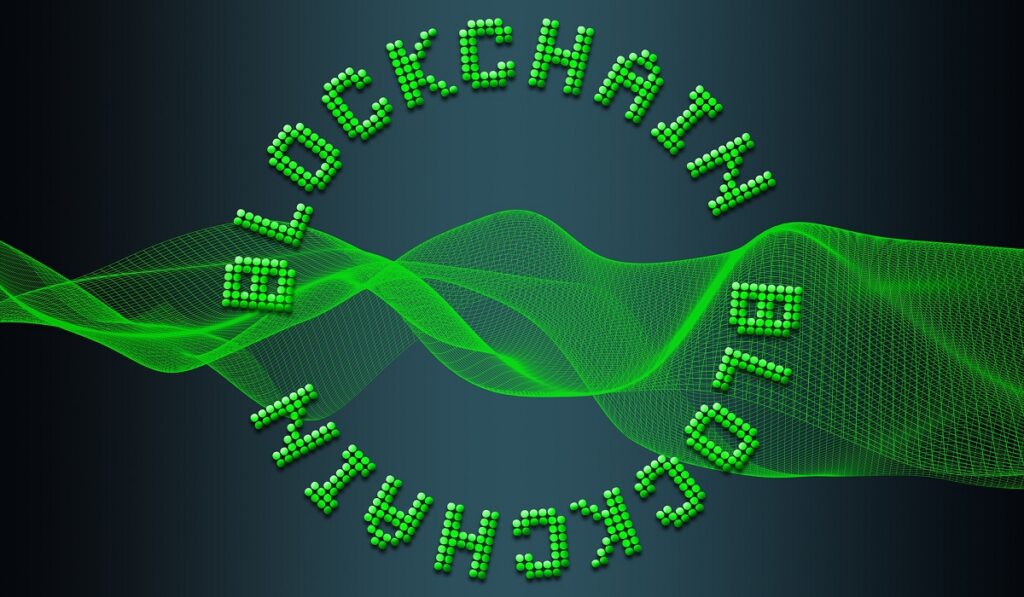Blockchain In Education: How Blockchain Technology Could Transform the Future of Education?
Is it possible to apply blockchain technology in education? The future of blockchain in education is very promising. Blockchain technology can help create a more accessible and trustworthy education system and bring innovative use cases across various industries.
Many people agree that introducing the concepts of blockchain technology to various education sectors will bring about a qualitative shift in the efficiency of the work of these sectors.
Education has seen drastic changes from traditional classroom settings to web-based-learning (E-learning), and we have now moved towards blended learning.
Blockchain technology has great potential to transform the education sector by making it more efficient, transparent, and trustworthy and providing a secure, transparent, and tamper-proof platform for storing and sharing academic records.
Blockchain has the potential to enable educational institutions to issue their own certificates and learners to have full control over their credentials.
Let’s take a look at how blockchain technology will impact the education sector in the future.

What is the Future of Blockchain in Education Sector?
Many educational bodies have realized the importance of harnessing blockchain technology in the field of education. Some educational institutions have begun to apply this technology on a modest scale. Many seminars and conferences have been held in preparation for receiving blockchain in education. This is with the aim of achieving qualitative leaps in the work of educational institutions, which will naturally reflect positively on the state of society as a whole.
Blockchain technology also has the potential to revolutionize the education sector in the future. It has the potential to transform how academic data is managed, and how teachers and students interact in the classroom.
In this blog, we will explore the future of blockchain in education sector, delving into the transformative power of blockchain technology and how it can empower the learning experience.
6 Ways Blockchain can Bring About Change in the Education Sector
Due to the high degree of security, privacy, and credibility, there has been a tendency to apply blockchain in education in general and the field of higher education in particular. Blockchain technology can help educational institutions create a more engaging and interactive learning environment, and can help students develop critical thinking and communication skills. Look at the six ways blockchain technology can bring about change in the education sector
1. Smart Contracts for Courses and Assignments
There are many use cases for smart contracts in education. Smart contracts herald a new era of education, transforming traditional learning systems into transparent, secure, and decentralized environments.
Smart contracts consist of lines of code that are programmed on blockchain technology and are automatically executed when certain conditions are met. Smart contracts can help manage course content and distribution and facilitate the work of teachers.
Smart contracts can make it possible to automatically distribute course materials, such as reading materials, videos, and quizzes.
The future of education is being shaped by the power of smart contracts. Blockchain can help improve the quality of courses, track students’ progress and completion of assignments and reduce administrative burdens. This will help create a more engaging and effective learning experience.
2. Student Record Keeping
Typically, academic credentials are stored in central databases that are vulnerable to hacking and fraud. Blockchain used to keep student records. One of the major benefits of using blockchain in education is that it can help eliminate fraud.
The economics of fake degrees and fake certificates are increasing day by day with the rise of online learning, and this is a major concern for many companies and educational institutions around the world. Blockchain technology can easily solve this problem through certificate management, where universities can store certificates on the blockchain database as immutable entries, making it difficult for fraudsters to alter or fake qualifications.
Many blockchain technology development companies provide certificate and identity management services. Since blockchain technology is open source, all documents will be stored on the blockchain and are immutable and verifiable because they are transparent.
Learners can have more control over their academic qualifications. They can easily share these testimonials with potential employers using accurate URL links in their email signatures, social media profiles, and resumes at any time.
3. Cryptocurrencies for Rewards
You receive scholarships, prizes and rewards for your outstanding performance in extracurricular and academic activities. Blockchain technology enables educational institutions to provide rewards to children in the form of digital currencies.
In online learning environments, teachers can use gamification to motivate their students to complete modules or other assignments. Gaming-related learning management features help convert all rewards into digital currency.
Smart contracts can be used to stimulate and facilitate learning and collaboration among peers. It can be programmed to reward students for contributing to electronic discussions, or for providing feedback on their colleagues’ work.
4. Digital Badges and Certificates
Blockchain-enabled digital certificates offer several advantages. One of the most important applications of blockchain technology in e-learning is to create secure digital badges and certificates that you can easily verify and display on your digital wallet.
With the help of blockchain, you can create digital certificates that cannot be forged and can later be used for verification during the admission application or job process.
Blockchain technology can revolutionize the process of issuing digital certificates by creating public records that are immutable and can be verified at any time without fear of tampering.
Digital certificates stored in the ledger cannot be destroyed unless all copies in each system are destroyed, ensuring their long-term durability and accessibility.
5. Ease of Certification Authenticity
The process of transferring and verifying documents when a student moves to a new school is a cumbersome procedure that takes a lot of time for the student, teacher and administration. Blockchain technology can be used to facilitate and streamline the verification process in schools and universities.
Distributed ledger technology provides you with transparency and accountability in education. You can create a permanent record of educational data that can be verified and cannot be changed, including academic records and certificates.
Learners can share their academic credentials and certificates with employers or other educational institutions, who can verify the authenticity of the certificates with complete accuracy and transparency by checking the digital signature and hash against the information stored in the blockchain.
6. Reduced Administrative Costs
Blockchain technology can streamline administrative processes and reduce costs associated with manual verification and document storage.
Currently, the process of verifying academic credentials can be time-consuming and expensive. Blockchain technology can make the process of verifying their qualifications easier and less expensive for learners.
The benefits of blockchain technology can be applied to cases where students participate in exchange programs between educational institutes, where student grades are easily exchanged and the necessary access is provided to achieve this between educational institutions.
Blockchain technology can help educational institutions handle grading, admission, registration and recognition of degrees more efficiently and securely, which contributes to reducing administrative costs in the long run.
Read Here: Blockchain Technology: Advantages and Disadvantages
Conclusion: The Future of Blockchain in Education
Blockchain can help mitigate emerging risks and challenges in higher education, improve the education quality and make learning an enjoyable journey.
Smart contracts can help provide highly personalized learning within a typical classroom environment and give the motivation factor that traditional education systems sometimes lack.
Blockchain technology in education provides increased security, privacy, efficiency and storage capacity. Cryptocurrencies, along with blockchain technology and metaverse initiatives, are changing the financial business industry.
Therefore, integrating blockchain and distributed ledger technologies into academic curricula will not only provide more opportunities, but will also establish an effective and economical framework that serves all groups and provides greater achievement for all students.
In general and on a practical level, blockchain technology can help education institutions streamline their operations, reduce costs, and enhance the quality of education.



